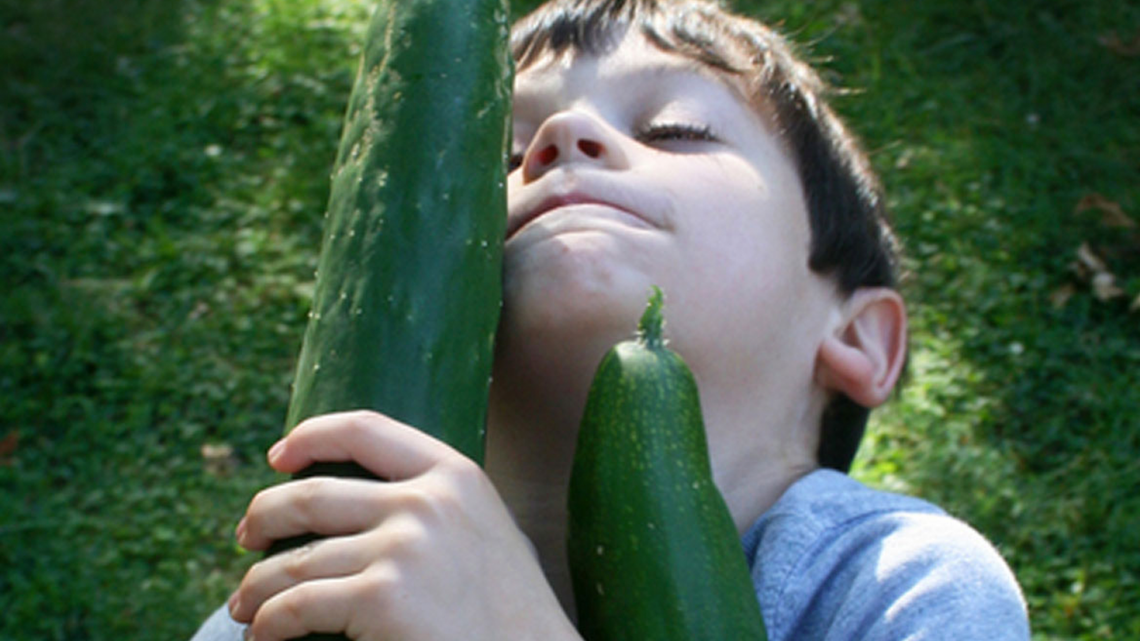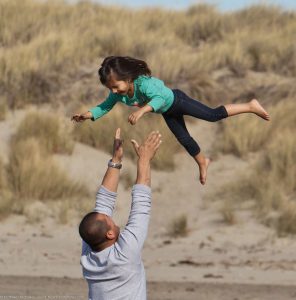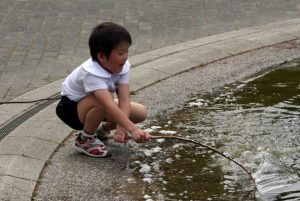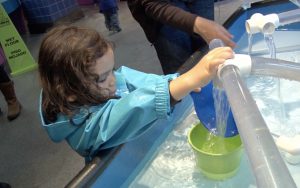
It is natural for you to want the best for your children, and there are few things more important than teaching them about the environment. But what if we have it backwards? What if a child’s view on ecology is exactly what we need?
Among the long and hilarious catalog of Cairns family folklore is my early zealotry about protecting the environment.
My father remembers his youngest, aged 8, blue-faced and screaming “dolphin murderer” at him because he had let the bath water go rather than scoop it out on the garden.
I’d like to think my environmental understanding has progressed since – but some days I wonder where the fight has gone and whether that pint-sized version of myself might have it right after all.
Environment educators say it may not be what we teach our children but the answers they come up with themselves. The solution may be to let them teach us.
Brisbane mother-of-three and parenting blogger Felicity Moore says her children had taught her a lot about environmental awareness and changed her habits.
“Children seem very plugged in to the world around them in a way that grown-ups seem to have lost,” Mrs Moore said.
“They play in the park on sunny days … they look at the clouds to see if it’s going to rain and they’re attuned to their surroundings. So when you tell them about things that threaten that, they have an immediate appreciation,” she said.
She said she was astounded at the concepts her children could understand.
“I help out in my children’s classrooms two days each week and I’m forever being amazed at the level of complexity in what they’re being taught. It’s stuff that I don’t think I even came close to learning about until much later, Year 6 or 7!”
Her eldest, Finley, understood the link between carbon monoxide and ecological damage from the tender age of 6.
“We’ll be driving along and he’ll start talking about how much petrol buses and trucks use and how bad that is for the environment,” Mrs Moore said.
“His comments opened up a window to talk to him about how the bus actually helps keep more cars off the road so less non-renewable resource is used.”
Mrs Moore says her children’s environmental vigilance had rubbed off on her, especially in reusing old household items. She said she was constantly collecting old cereal boxes, junk mail and food containers for craft projects.
“I’m much more focused on recycling than I was before children,” she said.
Special needs schoolteacher Aine Convery said children had a strong eco-conscious culture.
“I’m part of a generation that had to be taught to take care of the environment. But this generation is implicitly aware of it.”
Through initiatives like tree-planting, water conservation and recycling, children could do something practical to help fight climate change, she said.
The pupils developed their own eco remedies then often took those habits home to influence their families.
“If the kids are really dedicated to the cause, they can change the way their parents think about it.”
Giuliano Perez, co-founder of the Growing Communities school garden scheme in Brisbane, Australia, said sustainable initiatives were an excellent vehicle for changing behavior at home.
“The kids are going home and saying (to mum and dad) we need a worm farm because we are wasting these food scraps,” Mr Perez said.
“They have a natural inclination to care … so the garden allows kids to work together and all that caring and tending happens in a collaborative way. Then they reap the rewards together.”
Mr Perez said involvement in a garden helped counter our “instant, disposable society”.
“You go into a supermarket and you buy a cabbage without a thought to how it got there,” he said.
More than that, teachers were starting to think about the garden as a teaching tool for mainstream subjects like maths and english, Mr Perez said.
“A lot of kids don’t want to be sitting in classrooms but you take them out of that and they thrive.”
But how well do they really understand environmental issues?
Better than you’d think, says Queensland University of Technology early childhood education and sustainability lecturer Julie Davis.
“Young children do engage with the issues and can understand complex ideas like sustainability if given the chance and the right teachers,” Ms Davis said.
She said children had an empathy for plants and animals that created an instinct not to hurt them. Good teachers encouraged children to develop their own ways to protect the environment.
“It’s really important not to dump the negative aspects of environmental issues on children,” Ms Davis said.
“The key purpose of education is to improve their understanding of the issues and make them see they can do something about it.”
In an evaluation of a water-saving education program in 2008, Ms Davis said she was surprised by the extent to which children influenced the adults around them.
“Teachers and parents were compelled to make changes to their own water use habits because of the children’s advocacy for water-conserving alternatives,” she said.
As for my old man, he has two giant water tanks and solar panels, he rides to work twice a week and together, we built a vegetable patch in his back yard. He no longer owns a bath.
This piece was originally published in Brisbane’s bmag. If you like this, subscribe to stay in the loop.
Main image: woodleywonderworks, CC


